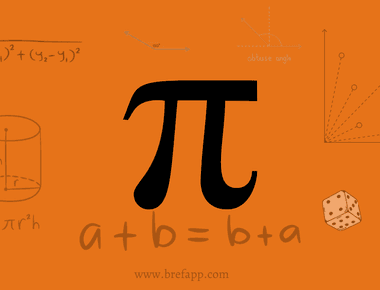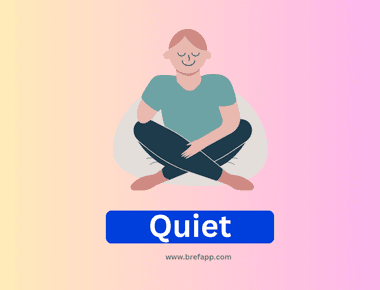
The Body Keeps the Score - Brain, Mind, and Body in the Healing of Trauma - Book summary

“The Body Keeps the Score: Brain, Mind, and Body in the Healing of Trauma” is a groundbreaking book written by renowned psychiatrist Dr. Bessel van der Kolk. The book explores the topic of trauma and its impact on the brain, mind, and body, providing an in-depth understanding of how trauma affects our lives and how we can heal from it.
The book is important because it challenges traditional approaches to trauma treatment and provides new insights into the connection between the body and the mind in trauma recovery. It highlights the importance of recognizing the physical, emotional, and psychological effects of trauma and provides practical strategies for healing. The book has become a widely acclaimed resource for mental health professionals, trauma survivors, and anyone interested in understanding the impact of trauma on the human experience.
Understanding Trauma
Trauma is defined as an emotional response to a distressing event, such as physical or sexual assault, war, natural disasters, or a life-threatening situation. Trauma can have a lasting impact on a person’s mental, physical, and emotional health, leading to symptoms such as anxiety, depression, flashbacks, and hypervigilance.
Trauma affects the brain and body in various ways. When a person experiences a traumatic event, the brain’s stress response is activated, leading to the release of stress hormones such as cortisol and adrenaline. These hormones prepare the body for a fight or flight response, leading to physical symptoms such as increased heart rate, sweating, and muscle tension.
Over time, chronic stress and trauma can lead to changes in the brain’s structure and function, including the amygdala (which regulates fear), the prefrontal cortex (which regulates decision-making), and the hippocampus (which regulates memory). These changes can result in long-term mental health issues, including PTSD, anxiety, and depression.
There are different types of trauma, including acute trauma (a single traumatic event), chronic trauma (repeated exposure to trauma), and complex trauma (trauma that occurs within the context of relationships, such as childhood abuse or neglect). Each type of trauma can have a unique impact on a person’s mental and physical health.
Trauma Treatment
Traditional approaches to trauma treatment have typically focused on talk therapy, including cognitive-behavioral therapy (CBT) and exposure therapy. These therapies aim to help trauma survivors process their emotions and thoughts related to the traumatic event and develop coping skills to manage their symptoms. Medications such as antidepressants and anti-anxiety medications are also commonly prescribed.
However, these traditional approaches to trauma treatment have their limitations. For some trauma survivors, talking about their experiences can be retraumatizing and lead to worsening of symptoms. Additionally, medication can have side effects and may not address the root cause of the trauma.
New approaches to trauma treatment have emerged in recent years, focusing on the connection between the body and mind in trauma recovery. These approaches include somatic experiencing, yoga, mindfulness, and EMDR (eye movement desensitization and reprocessing) therapy. These therapies aim to help trauma survivors connect with their bodies, regulate their emotions, and process their trauma in a safe and controlled manner.
The benefits of these new approaches include a greater emphasis on self-care, a recognition of the role of the body in trauma recovery, and an understanding of the complex nature of trauma. They also provide trauma survivors with more options and flexibility in their treatment, allowing them to choose the approach that works best for them.
The Body-Mind Connection
The body-mind connection is a crucial aspect of trauma recovery. Trauma affects both the body and the mind, and healing from trauma requires addressing both aspects. Recognizing the body’s role in trauma is important because trauma survivors often disconnect from their bodies as a way of coping with the overwhelming physical and emotional sensations.
Techniques for connecting with the body include somatic experiencing, yoga, and body-based therapies such as massage or acupuncture. These approaches aim to help trauma survivors become more aware of their bodily feelings and learn to regulate their emotions through physical techniques.
Mindfulness is another important tool in trauma recovery. Mindfulness involves paying attention to the present moment without judgment, which can help trauma survivors become more aware of their thoughts, feelings, and bodily sensations. This increased awareness can help trauma survivors develop a sense of safety and control, which is often lost after a traumatic event.
Incorporating mindfulness into daily life can also help trauma survivors manage their symptoms outside of therapy sessions. Mindfulness techniques such as deep breathing or body scans can be used to regulate emotions and reduce stress in difficult situations.
Healing from trauma
Healing from trauma is a complex process that requires a combination of strategies. Some of the key strategies for healing from trauma include:
Therapy: Working with a trauma-informed therapist who can help trauma survivors process their emotions and develop coping skills is a critical component of trauma recovery.
Self-care: Engaging in activities that promote self-care, such as exercise, meditation, or spending time in nature, can help trauma survivors regulate their emotions and reduce stress.
Social support: Building strong relationships with family, friends, or support groups can help trauma survivors feel less isolated and provide a sense of belonging and validation.
Creative expression: Engaging in creative activities such as writing, painting, or music can help trauma survivors express emotions that may be difficult to put into words and provide a sense of control and empowerment.
The importance of relationships in healing cannot be overstated. Trauma often occurs within the context of relationships, and healing from trauma requires developing trusting and supportive relationships. Building relationships with trauma-informed professionals, supportive friends and family, or support groups can help trauma survivors feel less alone and provide a sense of safety and belonging.
Self-care is also a critical component of healing from trauma. Trauma survivors often experience ongoing stress and may neglect their physical and emotional needs. Engaging in self-care activities that promote relaxation and self-compassion can help trauma survivors regulate their emotions and reduce stress. Self-care can also help trauma survivors develop a sense of control and empowerment, which is essential to the healing process.
FinalThoughts
“The Body Keeps the Score: Brain, Mind, and Body in the Healing of Trauma” is a seminal work that sheds light on the complex nature of trauma and the impact it has on the body, mind, and relationships. The book emphasizes the importance of recognizing the body’s role in trauma recovery and provides insights into new approaches to trauma treatment that focus on the connection between the body and mind.
Some of the key points covered in the book include the definition of trauma, how trauma affects the brain and body, traditional approaches to trauma treatment, the limitations of these approaches, and the benefits of new approaches that focus on the body-mind connection. The book also emphasizes the importance of recognizing the role of relationships in healing and the critical role of self-care in trauma recovery.
“ “The Body Keeps the Score” is an important book that highlights the importance of understanding trauma and its impact on the body and mind. It provides a comprehensive framework for trauma recovery and offers hope for those struggling with the effects of trauma. By recognizing the body’s role in trauma and incorporating new approaches that emphasize the body-mind connection, trauma survivors can begin the journey towards healing and reclaiming their lives.”
Tags
Related Posts




Quick Links
Categories


